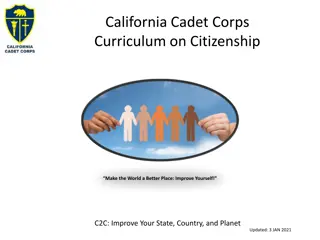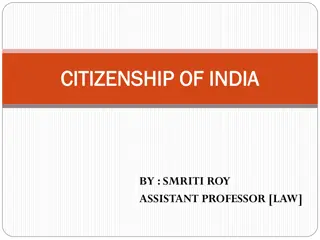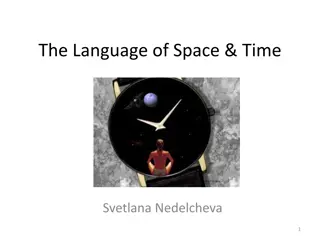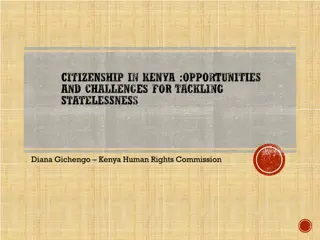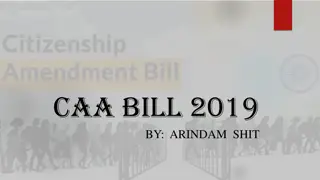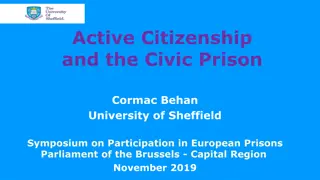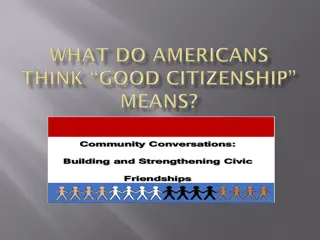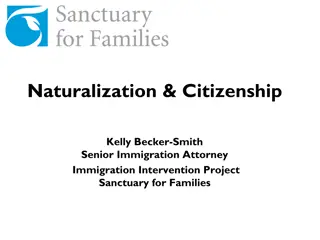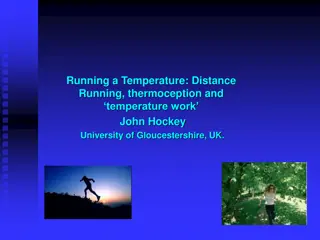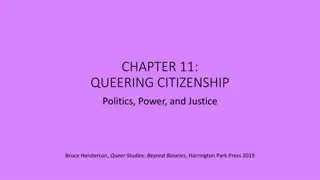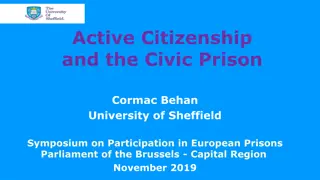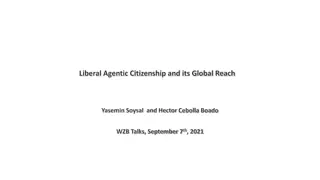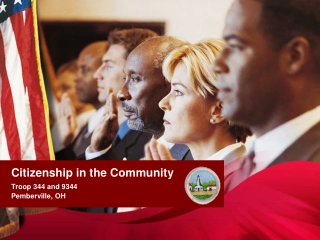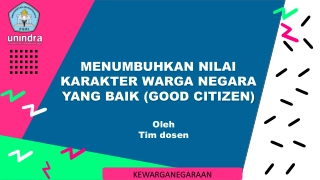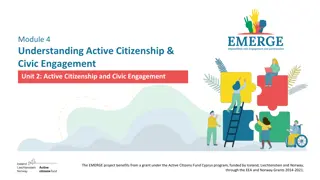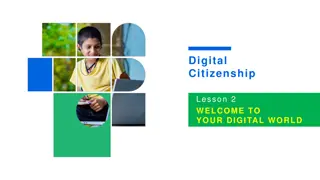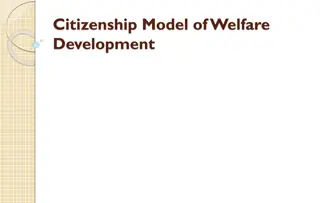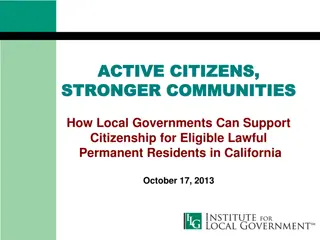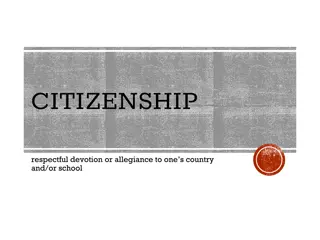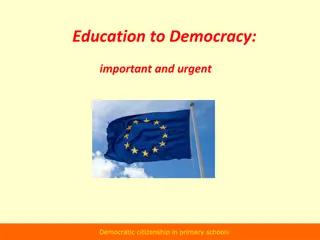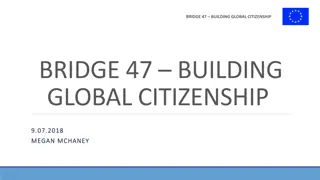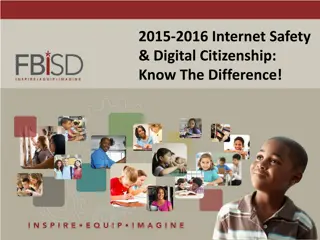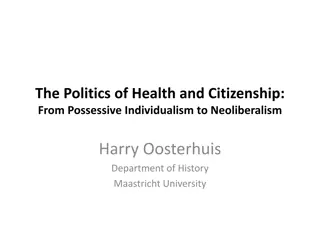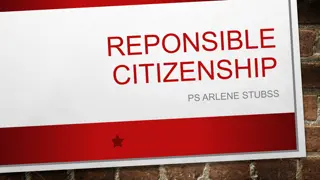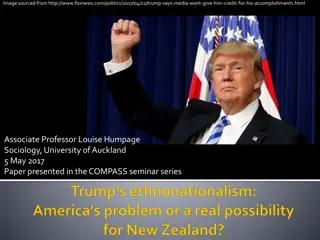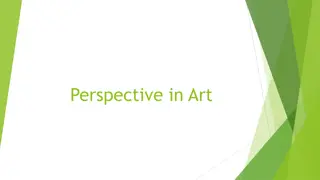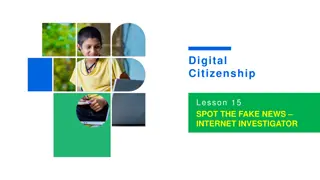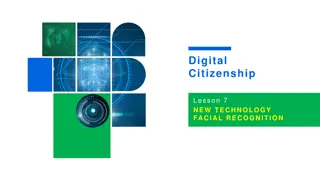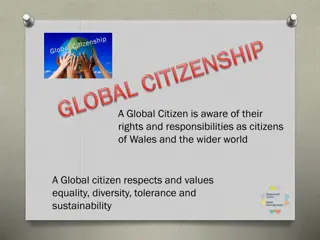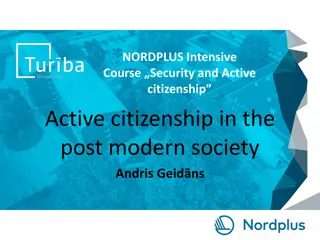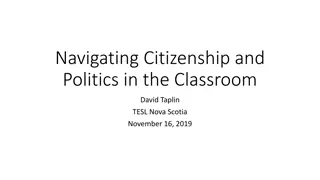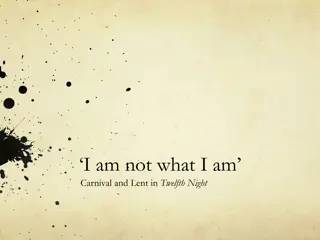Exploring Embodied Citizenship from a Materialist Perspective
This exploration delves into the concept of embodied citizenship through a materialist lens, challenging essentialist and sociological viewpoints. It discusses the ontological implications of materialism, emphasizing the contextual capacities of bodies and dissolving dualisms seen in traditional perspectives.
Download Presentation

Please find below an Image/Link to download the presentation.
The content on the website is provided AS IS for your information and personal use only. It may not be sold, licensed, or shared on other websites without obtaining consent from the author. Download presentation by click this link. If you encounter any issues during the download, it is possible that the publisher has removed the file from their server.
E N D
Presentation Transcript
The micropolitics of embodiment. ... citizenship, activism, posthumanism Nick J Fox, University of Sheffield Pam Alldred, Brunel University, London
I get up at a quarter to five ... and then I go out for a walk. I have the street lights to show me the way and I've done 22 streets this morning before I came in and had breakfast. ... Then I go out walking again. I done 42 streets all told. ... When I'm out walking, I can't see, but I always say good morning , and they always respond. And even the school kids, they will say good morning you know. And that gives you a sort of a warm glow when kids are wishing you good morning. Mr W (former postman; resident of Springwood care home, Adelaide)
A matter of ontology Question: What does a materialist and posthuman perspective add to our understanding of embodied citizenship?
The essential citizen For activists and lay people, a citizen is an entity to be (or to be aspired toward), grounded in personal/group character-istics, identities, natures or belongings. In this view, bodies genders, ethnicities , ages, sexualities, abilities are similarly essentialist properties.
The sociological citizen For many sociologists, citizenship is a social construct, emergent from concepts and cultural understandings of place, temporality, rights and embodiment. Bodies are similarly constructed from ideas, systems of thoughts and discourse, beliefs and knowledgeabilities.
A materialist alternative? I want to see what happens if we look at citizenship and embodiment from a third ontology: one that is materialist, relational and posthuman, and that focuses on the contextualised capacities of bodies, rather than essential or constructed attributes.
Why a materialist ontology? New materialism dissolves dualisms: Human/non-human Animate/inanimate Nature/culture Mind/matter Agency/structure Surface/depth (inside/outside) World/word See Braidotti, 2013; van der Tuin and Dolphijn, 2010.
New materialist theorists Karen Barad: onto-epistemology. Jane Bennett: vital materialism. Rosi Braidotti: posthumanism (beyond humanism/anti-humanism). Bruno Latour: ANT/sociology of associations. Deleuze and Guattari: micropolitics of assemblages.
Materialist ontology Post-anthropocentric and posthuman, focusing upon: Matter, not texts or mechanisms. Assemblages of relations, not entities. Actions/events not structures/systems. Affects, not agency. All the forces that affect matter: memories, ideas, values, desires affect matter, as well as physical, social and economic relations.
Materialism and embodiment Do not consider what a body is (e.g. natural, cultural, lived , constructed, disciplined), but what it can do. What a body can do must always be explored when it is assembled with other physical, social, cultural and psychological relations. We do not know what a body can do until it is acting/affecting within an event. The affects within assemblages, and a body s consequent capacities, produce a micropolitics of embodiment, which becomes the focus for research.
Posthumanism The subject of posthumanism is not Man (Braidotti: 2013: 169) but rather the processes of change and becoming of the natural and social world, and an ecology of the human and the non-human in which neither is distinguished from, or privileged over the other. Braidotti, R. (2013) The Posthuman. Polity.
Posthumanism and citizenship Becoming posthuman ... expresses multiple ecologies of belonging, while it enacts the transformation of one sensorial and perceptual co-ordinates, in order to acknowledge the collective nature and outward bound direction of what we still call the self. This is in fact a moveable assemblage ... that the subject never masters nor possesses but merely inhabits, crosses, always in a community, a pack, a group or a cluster (Braidotti, 2013: 193).
Older adults, embodiment and citizenship Study of older adults in Thailand and Australia. Interviews with 20 older adults in each settings, observation. Analysed in terms of the micropolitics of ageing assemblages. Fox, N.J. (2005) Cultures of ageing in Thailand and Australia . (What can an ageing body do?) Sociology, 39(3): 501-518.
Quote #1 I get up at a quarter to five ... and then I go out for a walk. I have the street lights to show me the way and I've done 22 streets this morning before I came in and had breakfast. ... Then I go out walking again. I done 42 streets all told. ... When I'm out walking, I can't see, but I always say good morning , and they always respond. And even the school kids, they will say good morning you know. And that gives you a sort of a warm glow when kids are wishing you good morning. Mr W, former postal worker; resident of Springwood care home, Adelaide.
Assemblage #1 body town streets eye-sight children postal service work memories time Micropolitically, this assemblage establishes a connection between Mr W and the local community.
Quote #2 For old people, getting old is not good because sometimes, quite often, they re sick and don t have the energy to go into the fields or the mountains. I go to work in the field four days each week, or if I don t go to the field, I get up early to cook, after that sewing, and after that I cook dinner and go to bed. Sometimes I feel unhappy because my children have grown up, some of them go out to work in the field, or have gone to study in the city. Mrs J, Hmong hill tribe, Thailand.
Assemblage #2 body fields work health family village children city culture time Micropolitically, this assemblage shapes Mrs J s daily involvement in her community.
Quote #3 I don t think about being old, in my mind I am still a school child because here we have everything, we have many activities. In the morning I come to the front of this home, and sing the national song, and at eight o clock I go to the cafeteria here and at nine p.m. I go to bed. ... I used to think that the people in these homes were people the family doesn t want, and let them come here. But now I don t think that, because elderly people are important and a lot of people outside ... come to visit me, and make activities that entertain me. Mrs L, resident in care home, Chiang Mai.
Assemblage #3 body residential home activities meals national song cafeteria visitors family cultural attitudes to elderly memories Micropolitically, this assemblage defines Mrs L s social position within her wider community.
The micropolitics of growing old For these three respondents, what their bodies can do, feel and desire are outcomes of the micropolitics between material relations in the assemblage. This analysis supplies a posthuman understanding of embodiment and identity, that shifts focus from the individual body to the entirety of the assembled materialities. From a posthuman perspective, citizenship for Mr W, Mrs J and Mrs L emerges not from belonging, but from the capacities to become other that the assemblages produce in their bodies.
Conclusion: materiality, post- humanism and citizenship I have argued for a understanding of embodiment based not upon intrinsic properties such as genders or sexualities, but as relational, and productive of contextually-specific capacities. The posthuman citizenship to which this relational embodiment contributes is not about being or belonging, but about becoming. It is an assemblage of bodies, things, places, thoughts, memories etc. that produces all kinds of capacities in bodies, groups and communities. This perspective has implications for both sociological analysis and for activism.
The micropolitics of embodiment. ... citizenship, activism, posthumanism





